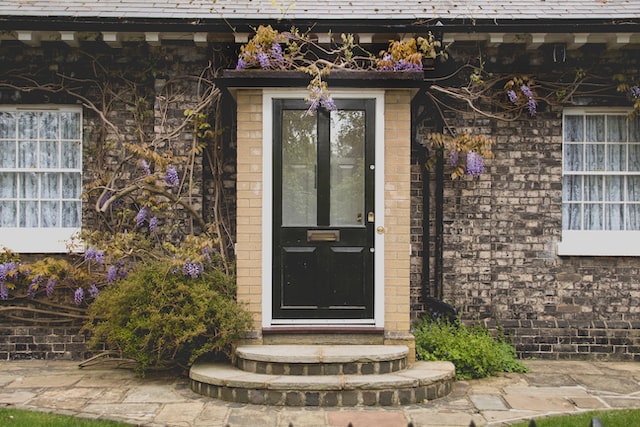The dynamic and rapidly growing South Carolina real estate industry is a beacon of promise for those seeking an exciting career in this field. To embark on this journey, aspiring real estate agents must meet certain prerequisites, undergo pre-licensing education, pass the licensing examination, and file a formal application with the state.

This guide is an all-encompassing resource for obtaining a South Carolina real estate license. In this comprehensive guide, RealEstate-Prep sheds light on the mandatory requirements, intricacies of the examination process, application procedure, and the boundless career prospects that lie ahead in this state.
Don’t forget to take our free SC South Carolina Real Estate practice exam to get familiarized with the format as well as the questions of the actual exam to strengthen your knowledge and skills, as a result, enhancing your chance to pass the Real Estate exam with a high score on your first attempt. Good luck to you!
Requirements for Obtaining a South Carolina Real Estate License
In order to practice as a real estate agent in South Carolina, one must fulfill certain eligibility criteria and undergo a set level of education. In this article, we will delve into the specific requirements for obtaining a South Carolina real estate license.
Eligibility Criteria
To enter the field of real estate agency in South Carolina, one must overcome a number of eligibility requirements. Let us highlight the age and citizenship requirements for obtaining a South Carolina real estate license, intertwining the knowledge you seek:
Age and Citizenship: You must be over the age of 18 and have either US citizenship or legal permanent residency. These criteria open the door to South Carolina real estate licensing.
Background Check: All license candidates in South Carolina are required to pass a thorough background check. What is its function? To ensure that only people with clean criminal backgrounds and good reputations are permitted to practice as real estate brokers. Expect a thorough investigation of your criminal past, credit history, and disciplinary records.
Education Requirements

The journey toward acquiring a South Carolina real estate license extends far beyond mere eligibility criteria. It ventures into the realm of education, encompassing two distinct yet intertwined segments: pre-licensing education and continuing education.
- As a precursor to the South Carolina real estate licensing exam, one must embark on a formidable course that delves deep into the fundamental intricacies of the real estate domain. This enlightening expedition requires the seal of approval from none other than the esteemed South Carolina Real Estate Commission. Fear not, for this odyssey offers various pathways to knowledge acquisition. You may traverse the traditional halls of a classroom, embrace the virtual dimensions of an online program, or harmoniously blend both realms in pursuit of enlightenment.
- A South Carolina real estate license demands the cultivation of intellect through continuing education. The pursuit of professional excellence beckons you to partake in a regular pilgrimage of enlightening courses. These educational endeavors shall bestow upon you the wisdom of ethics, the embodiment of professional standards, and the enlightenment bestowed by ever-evolving real estate laws and regulations. As a devoted learner, you are free to engage in these enlightening sojourns within the confines of a classroom, within the vast expanse of the online realm, or even embark upon the solitary path of self-study.
Yet, heed my words, for the shifting tides of requirements may stir the very foundations upon which this sacred path is built. Therefore, it is paramount to remain vigilant, diligently traversing the digital abode of the South Carolina Real Estate Commission’s website. In doing so, you shall remain attuned to the ever-changing winds that guide this noble journey. Adhering to the eligibility criteria and diligently fulfilling the hallowed demands of education, you shall chart a course towards a future brimming with the bounties of accomplishment and prosperity within the illustrious realm of the real estate industry.
The South Carolina Real Estate Licensing Exam
Format of the SC Real Estate License Exam
The South Carolina real estate license test is a demanding assessment of your knowledge of real estate concepts and rules. It comprises 120 multiple-choice questions separated into two sections: national (80 questions) addressing broad real estate topics and state (40 questions) covering South Carolina-specific rules. The test lasts 200 minutes, and a minimum score of 70% in both portions is necessary to acquire your license.
Exam Content and Coverage
The exam broadens its scope to encompass a diverse array of real estate topics, from property ownership and transfer to financing, appraisal, property management, and more. The state portion delves deeper into the nuances of South Carolina real estate, examining subjects such as the South Carolina Real Estate Licensing and Regulation Act, the South Carolina Real Estate Commission, and the South Carolina Code of Ethics. The objective of the exam is to determine whether you possess the necessary knowledge and abilities to succeed as a licensed real estate agent in South Carolina.

Preparation Resources for the SC Real Estate License Exam
To prepare for the South Carolina real estate licensing exam, various resources are at your disposal, including pre-licensing courses, study guides, and practice exams. Many schools and organizations offer pre-licensing courses that provide an in-depth understanding of the exam’s subject matter, build confidence and highlight areas for further study.
Study guides and practice exams offer an overview of the exam format and content, as well as practice questions to assess your knowledge and guide your study efforts. To ensure success on exam day, it’s crucial to make the most of these preparation resources and thoroughly prepare for the South Carolina real estate licensing exam.
Application Process for Obtaining a South Carolina Real Estate License
The path to becoming a licensed real estate professional in South Carolina entails a systematic application process. It starts with the filing of an application and culminates with the receipt of a notice indicating eligibility to take the licensing exam. Here’s a step-by-step guide to help you traverse this process with ease.
Filing the Essential Forms
In the exciting initial phase of your real estate pursuit in South Carolina, you’ll encounter the all-important application form. Obtainable from the esteemed South Carolina Real Estate Commission’s website, this document delves deep into your personal details. From your name to your address, Social Security number, educational background, and employment history, it leaves no stone unturned. Accuracy is paramount, as any discrepancies can cause processing delays. Your dreams hinge on the precision of this form, so let truth and legitimacy guide your hand as you embark on this real estate odyssey.
Submitting Supporting Documents
The application procedure is more than just submitting the application. A pre-licensing certificate of completion, certified transcripts from pre-licensing education courses, proof of legal status in the United States, a criminal background check, and any other relevant documentation must be submitted to the Commission. It’s a meticulous procedure that guarantees you’re prepared and dedicated.
Fees Associated with Obtaining a Real Estate License
The application procedure entails a slew of costs that require your attention, including not just an application fee but also an exam charge and a license fee. However, because these costs may vary, leaving one to ponder and wonder, it is strongly suggested, if not downright vital, to meticulously examine the Commission’s website for the most up-to-date and important information regarding to these monetary impositions. Take note, however, that once paid, these costs are not refundable, so be sure to have your financial affairs in order at the precise moment of submitting your application, as no compromises will be given in that respect.

Timeframe for Processing the Application
Upon completion of the application, submission of supporting documents, and payment of fees, the South Carolina Real Estate Commission will commence its review process. The processing timeline may vary, but it usually takes several weeks for the Commission to review the application and reach a decision. In the event of approval, you will receive a notice indicating your eligibility to take the licensing exam. If your application is denied, the Commission will provide a notice detailing the reasons for the denial and the steps required to rectify the issues.
Keeping Your South Carolina Real Estate License Active
As a real estate professional in South Carolina, it’s vital to retain the validity of your license to continue providing impeccable services to clients. This piece outlines the fundamental aspects of maintaining your license, including the renewal process, the significance of ongoing education, and the ethics and professional standards that you must observe.
South Carolina Real Estate License Renewal Requirements
The South Carolina Real Estate Commission requires that licenses be renewed every 24 months. To keep your license in good standing, you must complete the necessary continuing education hours, pay the renewal fee, and furnish evidence of your continuing education completion. Note that the exact number of hours required for renewal may vary, so it’s advisable to stay updated by checking with the Commission.
Continuing Education Requirements
Continuing education is a non-negotiable aspect of being a licensed real estate agent in South Carolina. It keeps you up-to-date with the latest changes in real estate law and regulations while helping you stay ahead of the competition and providing better services to clients. The Commission offers a range of continuing education options, including online courses and in-person seminars, to help you meet the education requirements.

Ethics and Professional Standards for South Carolina Real Estate Agents
In addition to ongoing education, South Carolina real estate agents must comply with a set of ethics and professional standards. These standards guarantee that real estate agents in the state maintain a high level of service quality and conduct themselves in a professional and ethical manner. The National Association of Realtors (NAR) has established a comprehensive Code of Ethics, and the Commission also has its own guidelines for ethical behavior. Failure to adhere to these standards may result in disciplinary action, including fines and the revocation of your license.
Career Opportunities in South Carolina Real Estate
Types of Real Estate Jobs Available
For individuals with a real estate license, South Carolina has a plethora of professional choices. The sector is flourishing and offers a wide range of opportunities, including:
- Real Estate Agent: The most popular sort of real estate work is guiding customers with the purchase and sale of properties with refinement and competence.
- Brokers are often more experienced and educated than agents, and they may operate their own real estate firm, taking a higher degree of responsibility.
- Property Manager: Property managers are responsible for the day-to-day operations of rental properties, such as collecting rent and handling maintenance concerns efficiently.
- Real Estate Appraiser: Appraisers are in charge of determining the worth of a property.
- Real Estate Consultant: Real estate consultants are essential assets in the market because they provide professional advice to customers on real estate investments, property management, and other related topics.
Potential Earnings for Real Estate Agents in South Carolina
Earning potential for South Carolina real estate agents is affected by factors such as experience, geography, and market circumstances. As of May 2020, the median annual pay for real estate brokers in South Carolina was $48,460, according to the Bureau of Labor Statistics. Real estate agents, on the other hand, may make significantly more if they have expertise and a demonstrated track record of successful sales. It’s worth mentioning that most real estate brokers operate on a commission basis, which means their profits are based on the number of transactions they close.

Networking Opportunities for Real Estate Agents
Networking is an essential component that drives success in the real estate sector. In South Carolina, real estate agents looking to interact with other experts in the field can find a genuine treasure mine of opportunities. These numerous changes include the following:
- Real Estate groups: By joining local or state real estate groups, agents may reap the benefits of networking while staying up to date on cutting-edge business changes and establishing relationships with their colleagues.
- Real Estate Conferences: These venerable bastions of knowledge and innovation provide agents with a great platform for digesting the industry’s latest trends and innovations. Furthermore, they provide an ideal setting for forming connections with other real estate enthusiasts.
- Local Realtor® Chapters: Many agents choose to be members of their own local Realtor® chapters. The vast horizons of networking, education, and professional progress unfold before their own eyes within these fortunate enclaves, generating a climate conducive to advancement.
- Community Events: Attending local community events, like as open houses and home shows, provides an incredible opportunity for agents to connect with possible clients. Through these connections, long-lasting ties can be formed, leaving their imprint on the industry’s tapestry.
Finally, the South Carolina real estate domain provides a vast playground for individuals who hold the coveted real estate license. Whether one’s ambitions are to be an agent, broker, property manager, appraiser, or consultant, a profusion of opportunities awaits them. South Carolina’s real estate agents may rise to the summit of accomplishment, basking in the splendor of unmatched victories and bountiful financial rewards, armed with a tireless work ethic, steadfast drive, and an unflinching dedication to establishing a powerful network.
Conclusion
Finally, acquiring a South Carolina real estate license can be a rewarding experience that opens the door to countless chances for professional progress and financial accomplishment. By following the procedures indicated in this tutorial, you will be able to successfully complete the licensing process and proudly become a licensed real estate agent in the state.
A career in South Carolina real estate is ideal for those who enjoy assisting people through the purchasing and selling of houses and are driven to succeed. Whether you’re a recent graduate or a seasoned professional looking for a change, the South Carolina real estate business gives plenty of opportunity for development and success. So don’t put it off any longer; chase your ambition now!



